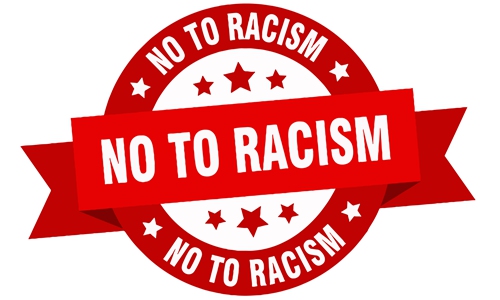Asian Americans rally against all hate as COVID-19 fuels fanatics

Photo: VCG
Earlier in May, the Asia Society of Southern California hosted an event called "Standing Against Racism in the Time of COVID." This was done to fight back against a rising wave of anti-Asian verbal and physical assaults in the US. Broadcast live via the internet, politicians and activists such as California Congressman Ted Lieu, the National Urban League's President Marc Morialto, and entertainment celebrities Joan Chen and Wang Leehom spoke out one after another. They condemned the racism with calls to embrace the "oneness" of humanity.
The event attracted more than 1,500 viewers on YouTube.
One of the guests was not as boldface as many of the others, or just not yet - he is only 18 after all. Nevertheless, Mao Bincheng's words got a lot attention.
In early February, when Mao, a freshman at New York University (NYU) and the founding president of a college student's organization called the East Coast Coalition for Tolerance and Non-Discrimination (ECC), stepped into a store in the Bronx, New York City, on the way to visit his friends living nearby, he was attacked. A customer approached Mao, who was the only person wearing a mask in the store. While Mao was waiting in line to pay, a man called him "you virus" before pouring a bottle of mineral water on his face.
Mao was stupefied. As a student from the Northern Chinese city of Tianjin who had spent four years in a high school in the US before getting into college, Mao had never encountered such overt racist attacks personally. In his diary that night, Mao wrote: "I am Asian. Ironically, I was the only one wearing a face-covering in that crowded mall. I hoped to protect not only myself but also the people around me, including him."
By then, the ECC had started a project called "Combat COVID and Emergency Relief" to raise money to donate protective equipment to hospitals in the US and other countries. By early April, the organization raised more than $30,000 and donated more than 2,300 N95 masks and other equipment, and their efforts were highlighted by NYU on its website.
This made the attack even harder to stomach and also more frustrating. Mao realized that offering kindness and love was not enough for Asians to fend off unreasonable hatred.
On February 15, the ECC launched a new project called "Minority Defense Initiative: Standing Up To Racism & Xenophobia In the Wake of COVID-19." It aims to raise the awareness of anti-Asian racism worldwide. The students post video segments and blogs via social media, collect signatures to push politicians to take action, and organize events like the one with the Asia Society.
The ECC is growing quickly during the pandemic - It was only established in New York in November but now has 3,000 members from 15 colleges across the US - and it isn't supporting only Asians.
Last year anti-Semitic incidents spiked higher in the US. In New York, where 1.8 million Jews reside, anti-Semitic hate crimes were at their highest levels since 1992.
This made Mao uneasy, and the trend was particularly disturbing against the backdrop of the rapidly deteriorating status of immigrants in the Trump era. One of Mao's college friends, an Arab, saw his rental apartment vandalized because he spoke Arabic publicly. "I realized it's not only about Jewish people, it's going to affect all minorities," Mao said.
That was the catalyst for the ECC, which Mao launched after discussing with some friends the increasing number of racist attacks and what young people could do to curb it. The first project the organization conducted was to collect more than 500 names of immigrants and post them online with their correct pronunciation to call for equality and respect of immigrants.
Van Jones, a commentator on CNN, said at the Asia Society event that the pandemic should help people realize our "oneness." He said, "If we don't learn that lesson and all come together and try to help each other, heal each other, recognize each other's pain, and each other's promise, it is all interrelated, we are not likely to learn a lesson from this virus."
However, seeing so many people acting in the opposite way, caring about only their own interests, be it in making decisions over whether to wear masks or pushing for a fast reopening of the US economy, I often suspect that the virus has pulled us further away from "oneness."
This is true even within the Asian community. The New York State Assembly Asian Pacific American Task Force held a Zoom town hall in April to discuss racism among Asians toward black people and to call for solidarity between communities of color and a restorative justice approach to hate crimes. But some Asians questioned why it wasn't focused on the anti-Asian attacks only.
Mao and the college students in the ECC have answered that by sharing their experience and actions. When young people recognize that injustice to one is injustice to all and work hard to promote the idea - virus or no virus - oneness becomes much more real.
The author is a New York-based journalist and Alicia Patterson fellow. rong_xiaoqing@hotmail.com
